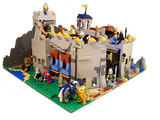
|
Aberdeen Keep
Known sometimes as "a town powered by the watermill." The smiths crave the power supplied in this quaint keep.
http://www.brickshelf.com/cgi-bin/gallery.cgi?f=414062
Submitted by: NewRight
|
|
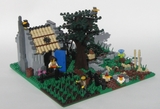
|
Crop Rotation
Crop rotation increases production of crops and avoids a decrease in soil fertility. In the Middle Ages, the three-year rotation was practiced by farmers in Europe with a rotation of rye or winter wheat, followed by spring oats or barley, then letting the soil rest by leaving it fallow during the third stage.
http://www.brickshelf.com/cgi-bin/gallery.cgi?f=409580
Submitted by: Athos
|
|
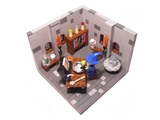
|
Discovery of gunpowder
On the first picture alchemist mixes two ingredients, sulfur and potassium nitrate. On the second picture ignites a mixture of using his magic wand. WOW! Mixture explodes and throws alchemist away. Gunpowder is discovered!
http://www.brickshelf.com/cgi-bin/gallery.cgi?f=411085
Submitted by: MajklCZ
|
|
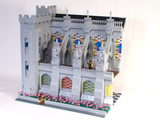
|
Flying Buttress
The Crown King has just finished his legacy, a new cathedral designed and built using flying buttresses, a new technology that allows interiors to be taller and more awe inspiring.
http://www.flickr.com/photos/31157752@N04/sets/72157622863752962/
Submitted by: shmails
|
|
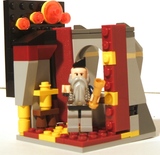
|
Galileo's Telescope
The invention that changed medieval science forever
http://www.flickr.com/photos/servant-saber/tags/technology/
Submitted by: PJCountach
|
|

|
Overshot waterwheel
First used in the 14th century, the overshot waterwheel gain a double advantage over normal waterwheels from gravity.
http://www.brickshelf.com/cgi-bin/gallery.cgi?f=414905
Submitted by: Athalus
|
|
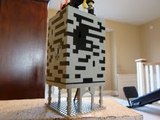
|
Pigeon Loft
Pigeons are much faster than horses. They were used a lot during midieval times.
http://www.brickshelf.com/cgi-bin/gallery.cgi?f=413806
Submitted by: Sir Zeppelin
|
|
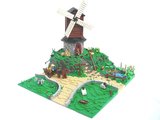
|
Post-mill
A 15th century windmill, where the tower rotates around a central pole, driven by a fan-tail. The advent of the windmill greatly increased grain production capacity, in particular the post-mill, which could operate under wind from any direction, unlike the earlier, fixed windmills.
http://www.brickshelf.com/cgi-bin/gallery.cgi?f=413620
Submitted by: SlyOwl
|
|

|
Rags-Paper Mill
A rags-paper mill, as it could be found them in the north of Italy and the south of Germany during the Middle Ages. The mill was driven by water power. The rags were crushed by big hammers after they had decayed. The rags were delivered by rag-and-bone men and were offset with gold.
http://www.flickr.com/photos/skalldyr/sets/72157623089787956/
Submitted by: Skalldyr
|
|

|
Sir Isaac Newton and the color spectrum
Sir Isaac Newton made a significant contribution to the development of Optics. He opened the decomposition of light into the spectrum due to dispersion by passing through a prism. With the help of triangular glass prisms break white light into seven colors (the spectrum), thus proving its complexity (the phenomenon of dispersion).
http://www.flickr.com/photos/kubik-rubik/sets/72157623023872722/
Submitted by: Kubikr
|
|

|
The Bombard
One of the first medieval cannons ever to see battle, the bombard was woefully innacurate. Although its accuracy could barely hit even castle sized targets consistently it was still a crucial step in the development of gunpowder weaponry.
http://www.brickshelf.com/cgi-bin/gallery.cgi?f=411429
Submitted by: elbadar
|
|
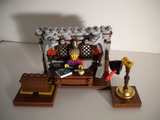
|
The Captain's Compass
The intrepid exploror, Captain Ashton, is depicted in his cabin finding out a course using a chart and a compass.
Since a compass's needle always points north it is a very valuable tool when you are sailing.
http://www.brickshelf.com/cgi-bin/gallery.cgi?f=414999
Submitted by: Balamorgineas
|
|

|
The Printing Press
One of the most famous technological advances of medieval times is Gutenburg's printing press.
http://www.flickr.com/photos/43547163@N08/sets/72157622733700314/
Submitted by: Busboy489
|
|
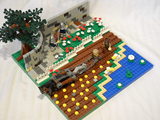
|
The steel plow
The use of the steel plow allowed better crop for the middle-age peasent.
http://www.brickshelf.com/cgi-bin/gallery.cgi?f=410904
Submitted by: Peter de Yeule
|
|
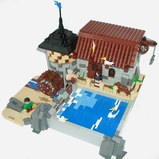
|
Tide Mill
The tide mill is a medieval invention. It's a water mill build on sea shore. It's works with the effect of the tidal energy.
As the tide comes in, it enters the mill pond through a one way gate, and this gate closes automatically when the tide begins to fall. When the tide is low enough, the stored water can be released to turn a water wheel.
http://www.flickr.com/photos/74louloute/sets/72157622848924457/
Submitted by: 74louloute
|
|
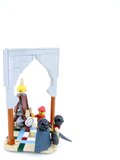
|
Time flies
Shah Jayko and his bodyguard, Andreas have traveled far to see a new wonder: the first geared clock, invented by the Arab engineer Ibn Khalaf al-Muradi in Islamic Iberia- a water clock that employs both segmental and epicyclic gearing.
http://en.wikipedia.org/wiki/Inventions_in_medieval_Islam#Clocks_with_gears_and_escapements
http://www.flickr.com/photos/shadowviking/sets/72157622973494015/
Submitted by: Shadowviking
|
|
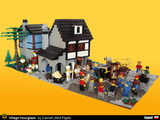
|
Village Hourglass
An hourglass trader came to the village.
http://www.flickr.com/photos/pigletciamek/sets/72157623109506816/
Submitted by: piglet
|
|

|
Windmill
A PF motorized windmill with modular house, complete with interior.
http://www.brickshelf.com/cgi-bin/gallery.cgi?f=411337
Submitted by: Tavernello
|
|
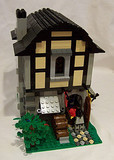
|
Winepress and liquerdistillery
This MOC features a winepress and a liquerdistillery, two medieval inventions.
http://www.flickr.com/photos/peterhooghiemster/sets/72157623056831590/
Submitted by: Griffon
|
|










